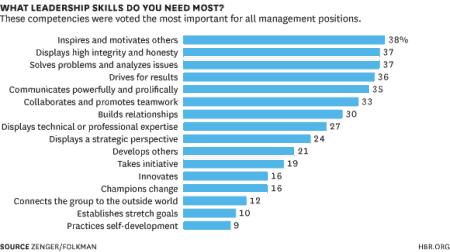
Are leadership skills different for emerging “Millennial” leaders than for people from different generations? This is a question being asked in many nonprofits as they look at how to prepare younger leaders in their organizations to lead and develop their talent. And from the perspective of younger leaders, who are ambitious but often feel stymied in their career paths because they are often met with the following response:
- Be reminded of how young they are and that they need to wait their turn if we want to lead
- Ready, set, here’s the deep end – hope you can swim.
Two recent research studies take a pass at answering that questions and the findings should be useful to those mentoring emerging leaders in their organizations and looking for professional development opportunities for them.

“The Accelerated Millennial Manager” by Devon Scheef and Diane Thielfoldt of The Learning Café is a summary of a research survey from 2011 through 2013 of 400 millennial managers, their managers, peer managers, team members, HR, and business leaders. The responses represent the perceptions of all four workplace generations and represent corporations, federal government, not-for-profit, and industry associations. The research discovered that all groups of co-workers agree that millennials need extra support around establishing sufficient respect and credibility that would allow them to:
- Lead older team members;
- Build the fundamental management skills that are conventionally learned in the natural progression of a lengthy career;
- Understand how to work effectively and at speed, while acknowledging hierarchy, bureaucracy, and status quo;
- Allow for the necessary patience and time for projects and ideas to mature and gain coalition among a variety of constituents necessary to ensure the success that everyone desires.
The report offers some great tips and advice to those managing emerging leaders on how to mentor them. There’s an excellent summary by the study’s authors in this post, “Preparing Millennials for Leadership Success,” the tips include:
1. Constantly double-check your assumptions
2. Raise their visibility internally with specific communication and development initiatives
3. Leverage their eagerness to learn from on-the-spot, on-the-go coaching spurts
4. Bridge the generation gap
5. Encourage innovative thinking, even if it means having to listen to the same ideas that were rejected 15 years ago
6. Revisit your expectations of how and when work best gets done

In this HBR blog post, The Skills Leaders Need At Every Level, the author shares the results of a research survey of 32,860 bosses, peers, and subordinates to learn the answer to this question: Are some skills less important for leaders at certain levels of the organization? Or is there a set of skills fundamental to every level? Survey respondents were asked to rank skills have the greatest impact on a their professional success in the position they currently hold. The most needed skills differed by their level but also by the type of job they held. The same 6 or 7 competencies (see chart above) were selected as most important for all levels. These skills are:
- Inspires and motivates others
- Displays high integrity and honesty
- Solves problems and analyzes issues
- Drives for results
- Communicates powerfully and prolifically
- Collaborates and promotes teamwork
- Builds relationships
What’s interesting about this research that while it shows specific skills for different levels, there are set of important skills needed throughout one’s career.
Is your nonprofit offer professional development for emerging leaderships? What does it look like? If you are an “emerging leader,” what makes a good mentor? If you are managing an emerging leaders, how do you provide mentorship and support?
